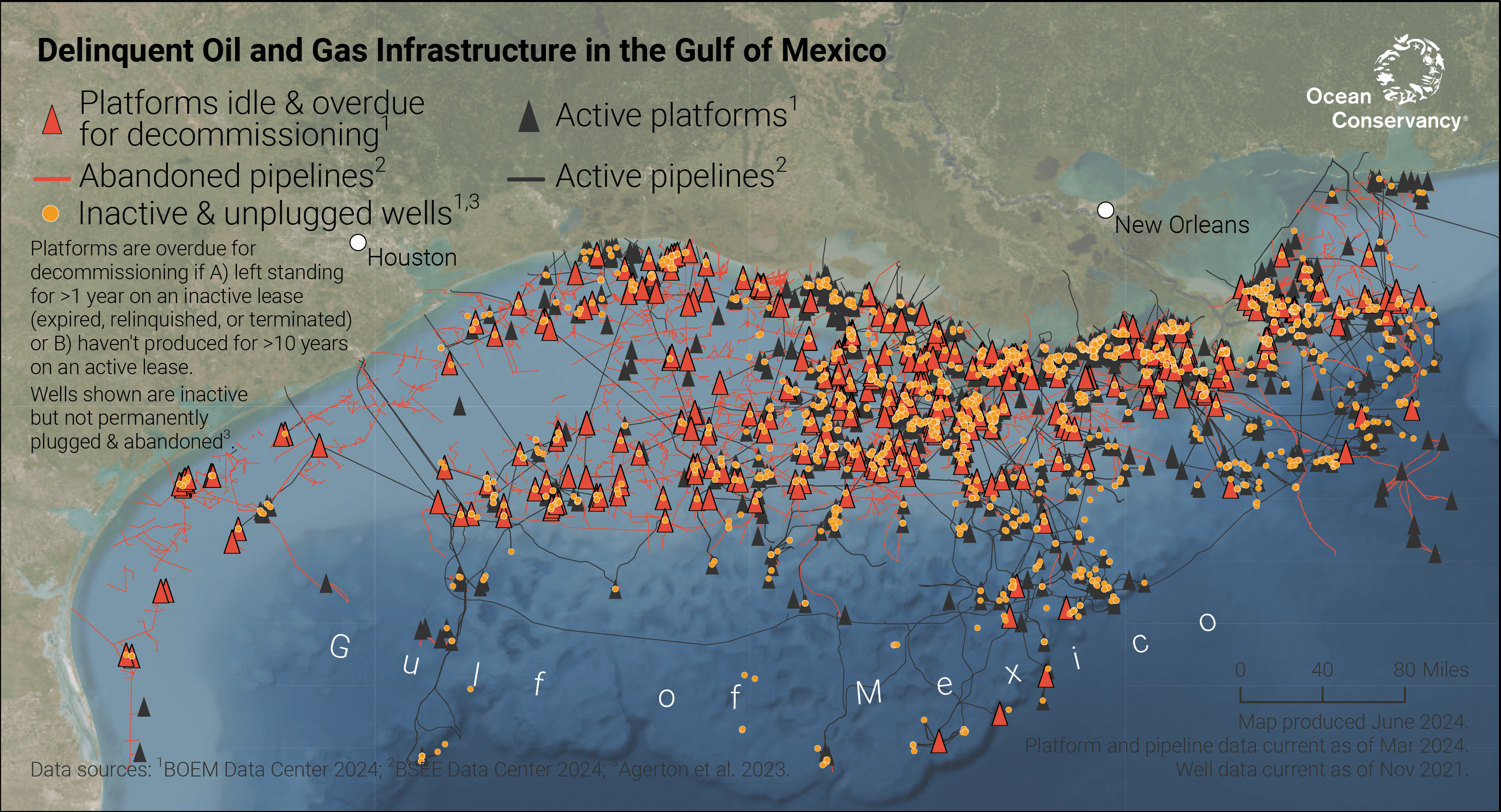Yes, Offshore Louisiana Is Just Perfect For Large Scale "Carbon Capture" - Hardly Any Abandoned Wells Out There!
EDIT
 ?quality=75&strip=all&w=1536
?quality=75&strip=all&w=1536
Abandoned, idle, and unused wells are a recognized risk for offshore carbon storage, just as it is onshore. Ocean Conservancy Report: Protecting the Ocean and Taxpayers by Strengthening Standards for Offshore Oil and Gas Decommissioning
In the meantime, companies have focused on developing carbon storage in the state waters off Louisiana, stretching 3.5 miles from the shore, and Texas, which controls the waters for about 10 miles from the shoreline. Meckel says there are 10 proposed projects in the two states, including GeoDura. Louisiana, unlike Texas, has the authority to permit carbon storage underground, including under state waters.
But the development of carbon storage in waters near the coast raises concerns about the higher number of abandoned, idle, or older oil and gas wells closer to shore that could allow stored carbon to leak out through existing wells. There are also questions about whether Louisiana would do a good job permitting and regulating carbon storage. “I can’t say it cannot be done, but the history of this technology, the history of the lack of pollution monitoring in the Gulf and in Louisiana waters in particular, we are extremely skeptical,” said Scott Eustis, community science director for Healthy Gulf, a Louisiana-based community and environmental advocacy group.
EDIT
There are just a handful of operating subsea carbon sequestration projects in the world, and none in the United States. Two offshore carbon storage projects off Norway’s coast have been called a success. But in 2023, the Institute of Energy Economics and Financial Analysis published a study pointing out that even in those two projects — in what the institute called some of the most studied offshore waters — the storage of carbon yielded some unwelcome surprises.
In one of the fields, the carbon unexpectedly migrated out of where it was injected, though it has remained underground. Injection into a second field had to be halted when the reservoir reached capacity 15 years before anticipated. The research “has revealed that storing carbon dioxide underground is not an exact science,” the report said. “It may carry even more risk and uncertainty than drilling for oil or gas, given the very limited practical, long-term experience of permanently keeping CO2 in the ground.”
EDIT
https://grist.org/energy/developers-eye-louisiana-texas-coasts-for-offshore-carbon-storage/
 ?quality=75&strip=all&w=1536
?quality=75&strip=all&w=1536